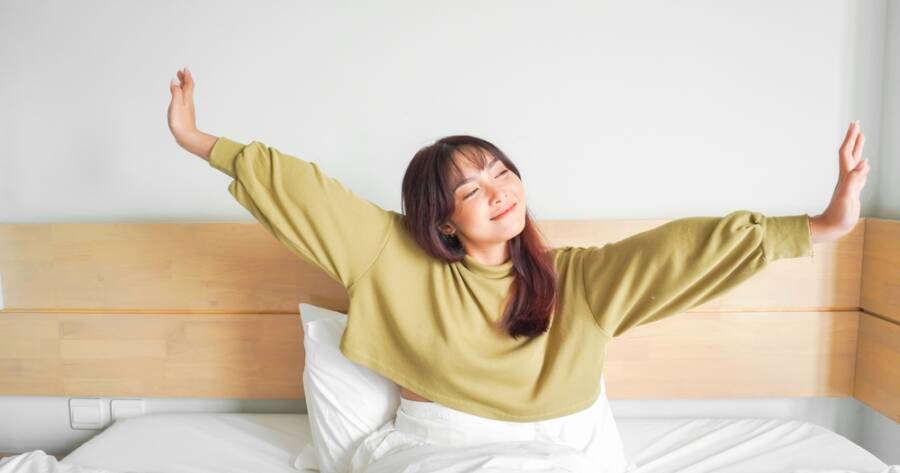A good night’s sleep is the foundation for a productive, energized day but it often feels just out of reach. Poor sleep habits, late-night scrolling, or an overstimulated mind can leave you tossing and turning. The good news? Small, intentional tweaks to your evening routine can make a big difference. By improving your sleep hygiene, you’ll fall asleep faster, sleep more soundly, and wake up feeling refreshed and ready to tackle whatever the day brings.
Create a Consistent Sleep Schedule
One of the simplest ways to improve sleep hygiene is to stick to a consistent sleep schedule. Going to bed and waking up at the same time every day—even on weekends—helps regulate your body’s internal clock. This consistency makes it easier to fall asleep and wake up naturally, leaving you more refreshed.
Start by setting a bedtime and wake-up time that gives you seven to nine hours of sleep. Gradually adjust your routine if needed, and try to avoid major variations. Over time, this small habit will signal to your body when it’s time to wind down and when it’s time to rise, making restful sleep more effortless.
Limit Blue Light Before Bed
Exposure to blue light from screens—phones, tablets, TVs—can interfere with your body’s production of melatonin, the hormone responsible for regulating sleep. When you scroll or binge-watch before bed, your brain stays stimulated, making it harder to fall asleep.
Aim to turn off screens at least 30 to 60 minutes before bed. Instead, wind down with a book, gentle stretches, or a calming activity. If avoiding screens isn’t always possible, consider using blue light filters or glasses to reduce the impact. Small changes in your evening tech habits can make a big difference in how quickly you drift off.
Keep Your Bedroom Cool, Dark, and Quiet
Your sleep environment plays a crucial role in the quality of your rest. A room that’s too warm, bright, or noisy can disrupt sleep cycles and cause frequent wake-ups. Ideal sleep conditions usually involve a cool temperature (around 65°F or 18°C), complete darkness, and minimal noise.
Invest in blackout curtains, white noise machines, or even earplugs to optimize your space. Decluttering your bedroom and reserving it as a calm, tech-free zone also signals to your brain that it’s time to relax. A sleep-friendly environment sets the stage for uninterrupted, restorative rest.
Be Mindful of Caffeine and Alcohol
Both caffeine and alcohol can interfere with your sleep—just in different ways. Caffeine is a stimulant that stays in your system for hours, making it harder to fall asleep even if you don’t feel wired. Alcohol, while it may make you drowsy initially, disrupts your sleep cycles and often leads to restless nights.
Limit caffeine intake after midday and keep alcohol consumption moderate, especially close to bedtime. Opt for calming alternatives like herbal teas or warm milk in the evening. Being mindful of what you consume gives your body the best chance to unwind naturally.
Develop a Relaxing Bedtime Routine
A calming bedtime routine helps signal to your body that it’s time to shift into sleep mode. Simple rituals—like dimming the lights, practicing gentle stretches, reading a book, or doing a few minutes of deep breathing—can all help relax your mind and body.
Consistency is key. Over time, these small actions cue your brain to wind down, reducing anxiety and promoting restful sleep. Experiment with different activities to find what feels most soothing for you, and make your nighttime routine something you look forward to each evening.
Get Natural Light Exposure During the Day
Your body’s sleep-wake cycle is influenced by exposure to natural light. Spending time outdoors, especially in the morning, helps regulate your circadian rhythm, making it easier to feel awake during the day and sleepy at night. Without enough daylight, your body may struggle to produce melatonin effectively.
Try to step outside for at least 10-15 minutes daily, even if it’s just a quick walk. Opening blinds and letting sunlight into your home also helps. This simple habit keeps your internal clock aligned and supports better sleep at night.
Small Changes Lead to Restful Nights
Good sleep doesn’t require a major lifestyle overhaul—just a few thoughtful tweaks to your routine. From limiting screen time and caffeine to creating a sleep-friendly environment, small shifts can lead to big improvements in how well you rest and how energized you feel each morning. By prioritizing sleep hygiene, you’re giving yourself the gift of better focus, mood, and overall well-being. Rested, refreshed, and ready—you’ll notice the difference in every part of your day.

